Feng shui rules for wedding planning
Whether you’re a “go with the flow” kind of person or the “everything must go according to plan” type, weddings are a once-in-a-lifetime experience. One of the first few things that couples have to decide before they start with any sort of planning is none other than the date.
Living in an Asian country like Singapore, feng shui is definitely something you’ve heard of. It’s one of the “tools” used to help couples choose a few auspicious dates that’ll bring good luck and extra huat to their marriage. Hence, we’ve compiled a few common feng shui rules that people follow when it comes to planning a date for D-day.
Do note that these tips are according to popular feng shui beliefs. Readers who are not superstitious should take them with a pinch of salt.
Table of Contents
- Feng shui rules for wedding planning
- – Dos –
- 1. Choose years with Double Spring or a Leap Month
- 2. Set a 100 days gap between other joyous or sombre occasions
- 3. Give red packets if you see another bride on your wedding day
- 4. Consider the zodiac signs of the bride, groom & both parents
- – Don’ts –
- 5. Avoid April & August if you are superstitious
- 6. Avoid clashes with sombre events like death anniversaries
- 7. Avoid having 2 joyous occasions in 1 year
- 8. Avoid “San Niang Sha” days which are inauspicious
- 9. Avoiding wearing old shoes
– Dos –
1. Choose years with Double Spring or a Leap Month

Image credit: @jellyfied via Instagram
A Double Spring Year occurs when there are 2 立春 (lì chūn), which means the “Beginning of Spring”, within 1 year. Spring symbolises new beginnings and having 2 of them makes it a great time to hold a wedding.
Leap months refer to a situation where there are 13 months in the lunar calendar. A leap month symbolises connubial love, making it a popular choice for wedding dates.
2. Set a 100 days gap between other joyous or sombre occasions
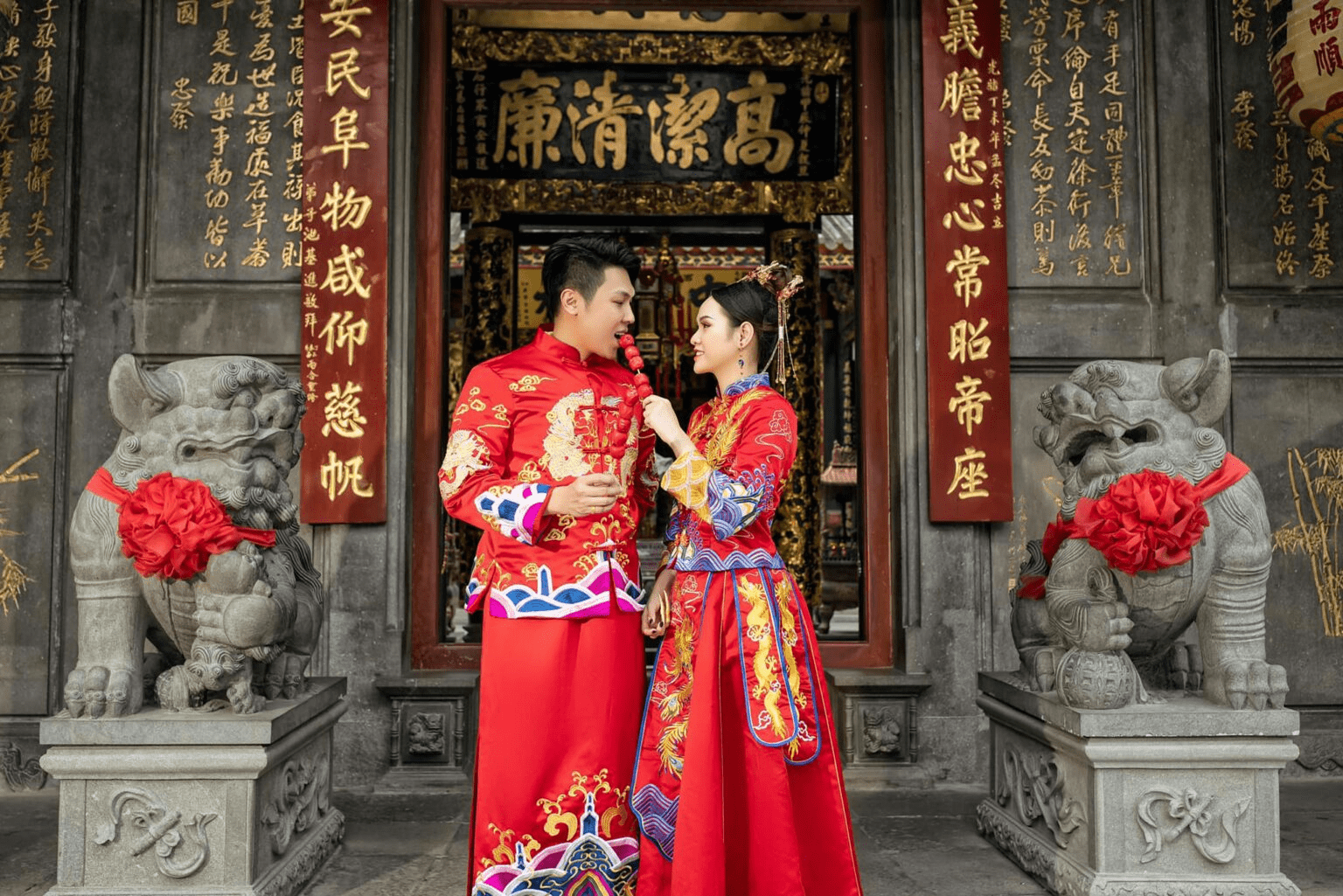
Image credit: Alibaba Studio
Couples are advised against attending any joyous occasions – such as another wedding or a baby’s full month celebration – 100 days before and after their special day.
Joyous occasions bring about 喜 (xǐ) – happiness – and attending one shortly before or after one’s own wedding might result in 喜冲喜 (xǐ chōng xǐ), a clash of happiness where the couple might lose their own luck.
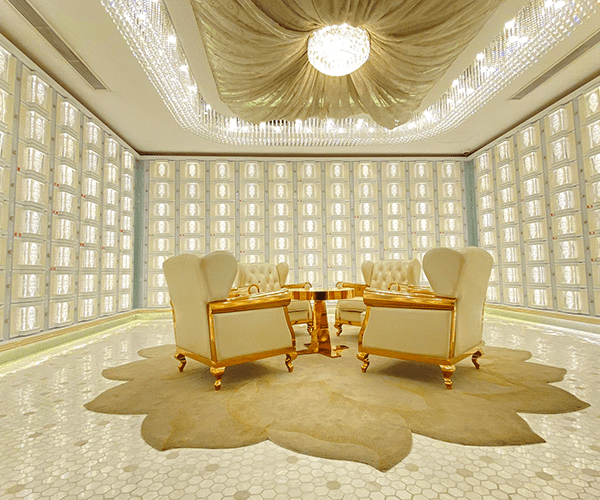
Niches at Nirvana Fu Gui.
Sombre events refer to things such as funerals and death anniversaries.
Image credit: Nirvana Singapore
Conversely, couples are also advised against attending any sombre events such as funerals 100 days before and after their wedding – as it’s believed that negative energy will linger around the couple. Many believe that it will lead to bad luck or even a failed marriage. Couples are also discouraged from inviting anyone who’s mourning within the 100-day time frame.
3. Give red packets if you see another bride on your wedding day
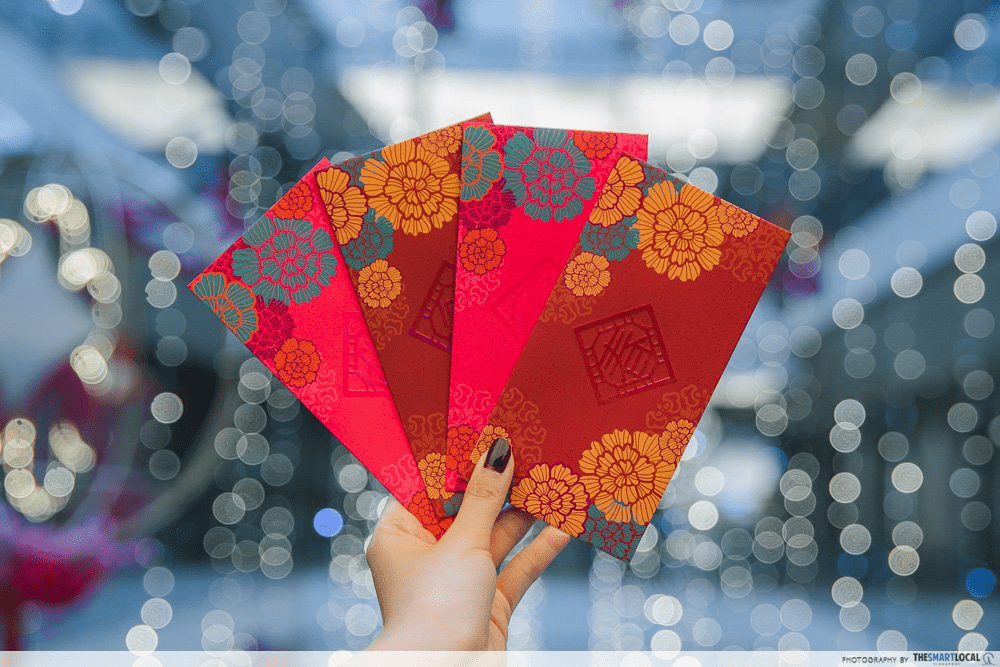
Since most weddings in Singapore are held in hotels, it’s common to see more than 1 wedding happening at the same time. As a result, there’s also a chance that 2 brides will meet, resulting in a clash of energy and luck.
To solve this problem, the brides should exchange red packets with each other to neutralise the impact and redirect the energy and flow of luck. So… brides or bridesmaids, you might wanna carry a few red packets for the bride just in case.
4. Consider the zodiac signs of the bride, groom & both parents

According to Chinese zodiac belief, certain zodiac signs clash with one another. One example would be the Ox and Sheep. Hence, it’s important for couples to choose a day and month that does not clash with the 6 most important people in any wedding: the bride, the groom, and their respective parents.
– Don’ts –
5. Avoid April & August if you are superstitious
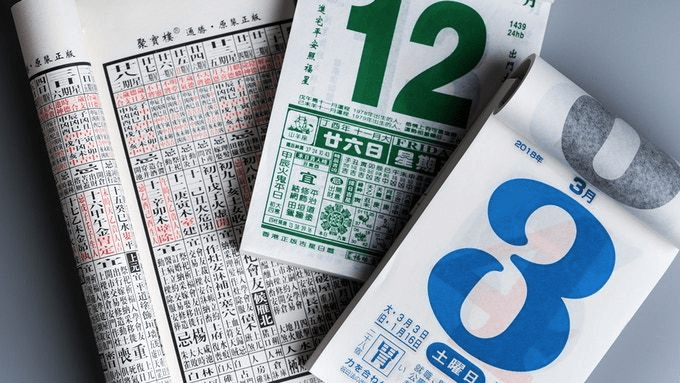
Image credit: Daper
One of the important festivals that the Chinese commemorate is the Qing Ming Festival, also known as Tomb-Sweeping Festival where the living celebrate and pay respect to their deceased ancestors. It goes without saying, but it’s probably the least huat time to have your wedding – and might even be considered disrespectful.
Another period to avoid if you’re the superstitious sort would be Hungry Ghost Month. Depending on the lunar calendar, it usually starts some time in August and September. It isn’t advisable to hold your wedding during this month, or you might come into contact with someone in white who isn’t your bride. Gulp.
6. Avoid clashes with sombre events like death anniversaries
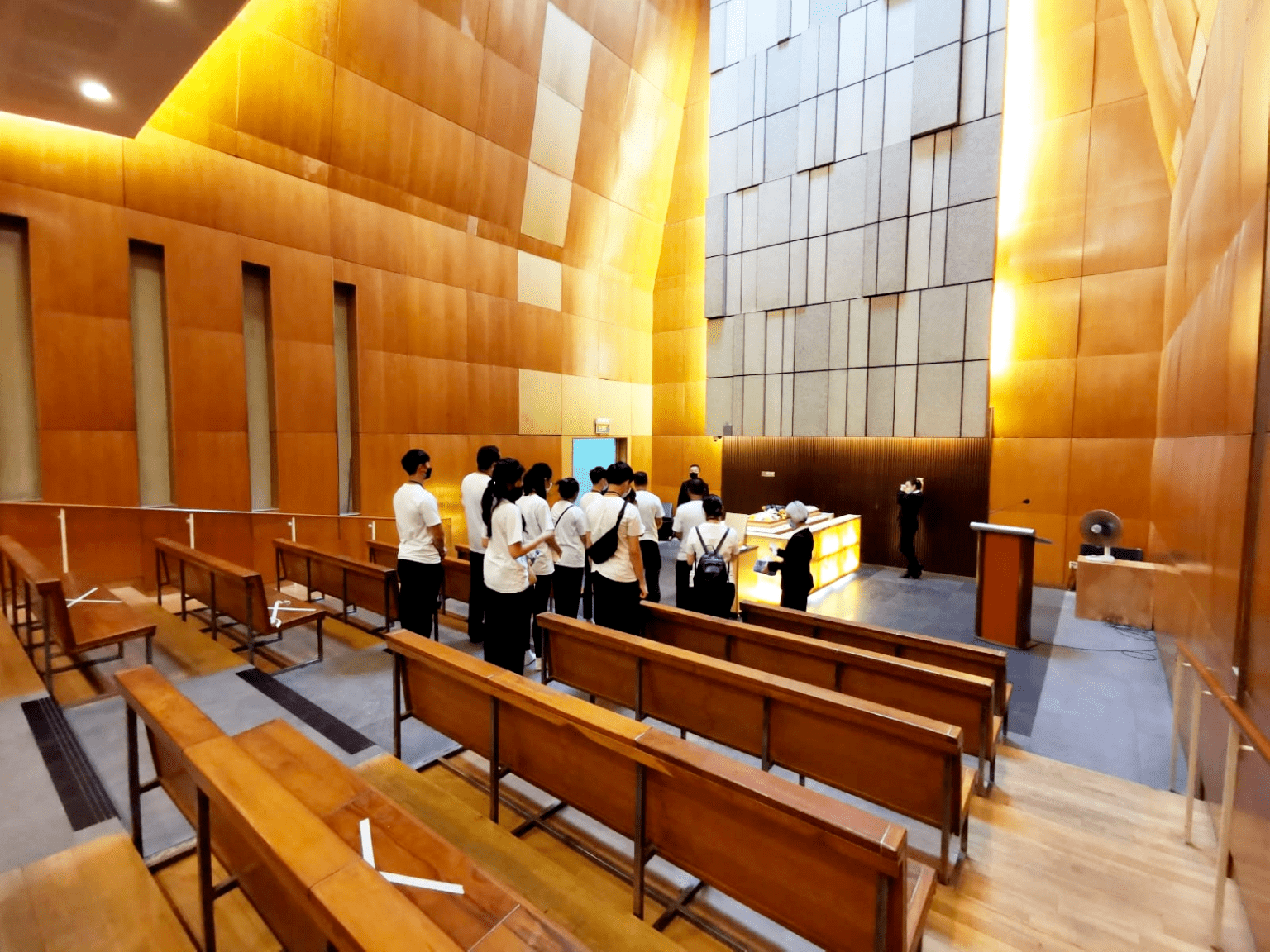
Mandai Crematorium and Columbarium Complex.
Image credit: Nirvana Singapore
Weddings are auspicious occasions that are seen as “red events” while sombre occasions like death anniversaries are considered inauspicious “white events”. Couples are encouraged to avoid having their wedding near “white events” to prevent having a “red event” clashing with a “white event’, otherwise known to the Chinese as 忌红事冲白事 (jì hóng shì chōng bái shì).
If a family member passes on 100 days before the wedding date, the couple will have to bring forward their wedding so that they can get married within the 100 days period. This is done to switch up the inauspicious energy within the family using a big, auspicious event such as a wedding. Otherwise the couple has to wait 1,000 days out of filial piety to get married.
7. Avoid having 2 joyous occasions in 1 year
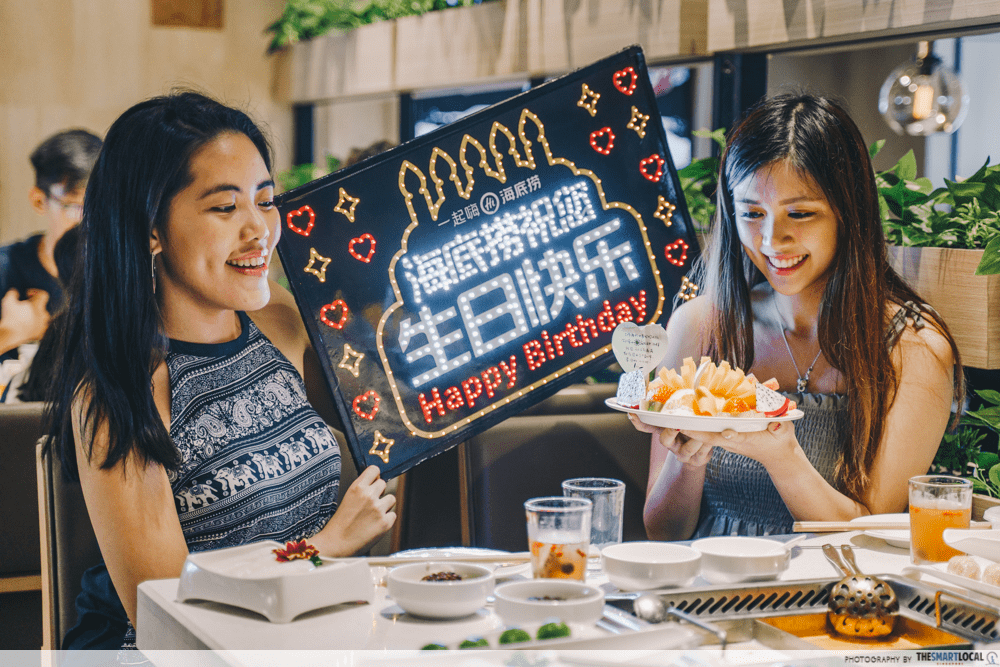
Here’s where the saying “the more, the merrier” cannot be applied. Couples are not encouraged to get married in the same year as another wedding in their family – or if a baby is expected to be born. Similar to what we covered above, having 2 joyous occasions will result in 喜冲喜 (xǐ chōng xǐ) – a clash of happiness – bringing bad luck to the couple.
Similarly, couples should avoid picking dates that fall on the bride’s, groom’s, parents’, or siblings’ birthdays.
8. Avoid “San Niang Sha” days which are inauspicious

Legend has it that the God of Marriage refused to pull the silken cord for marriage on the wedding day of San Niang, a fictional character in Chinese literature. As a result, she was unable to get married. As a form of revenge, San Niang swore to ruin the marriages of couples who decide to hold their wedding on the 3rd, 7th, 13th, 18th, 22nd, and 27th of every month on the lunar calendar.
These dates are now known as the “San Niang Sha” days. While some feng shui practitioners choose to ignore this belief, it’s still something interesting to take note of if you’re more superstitious.
9. Avoiding wearing old shoes
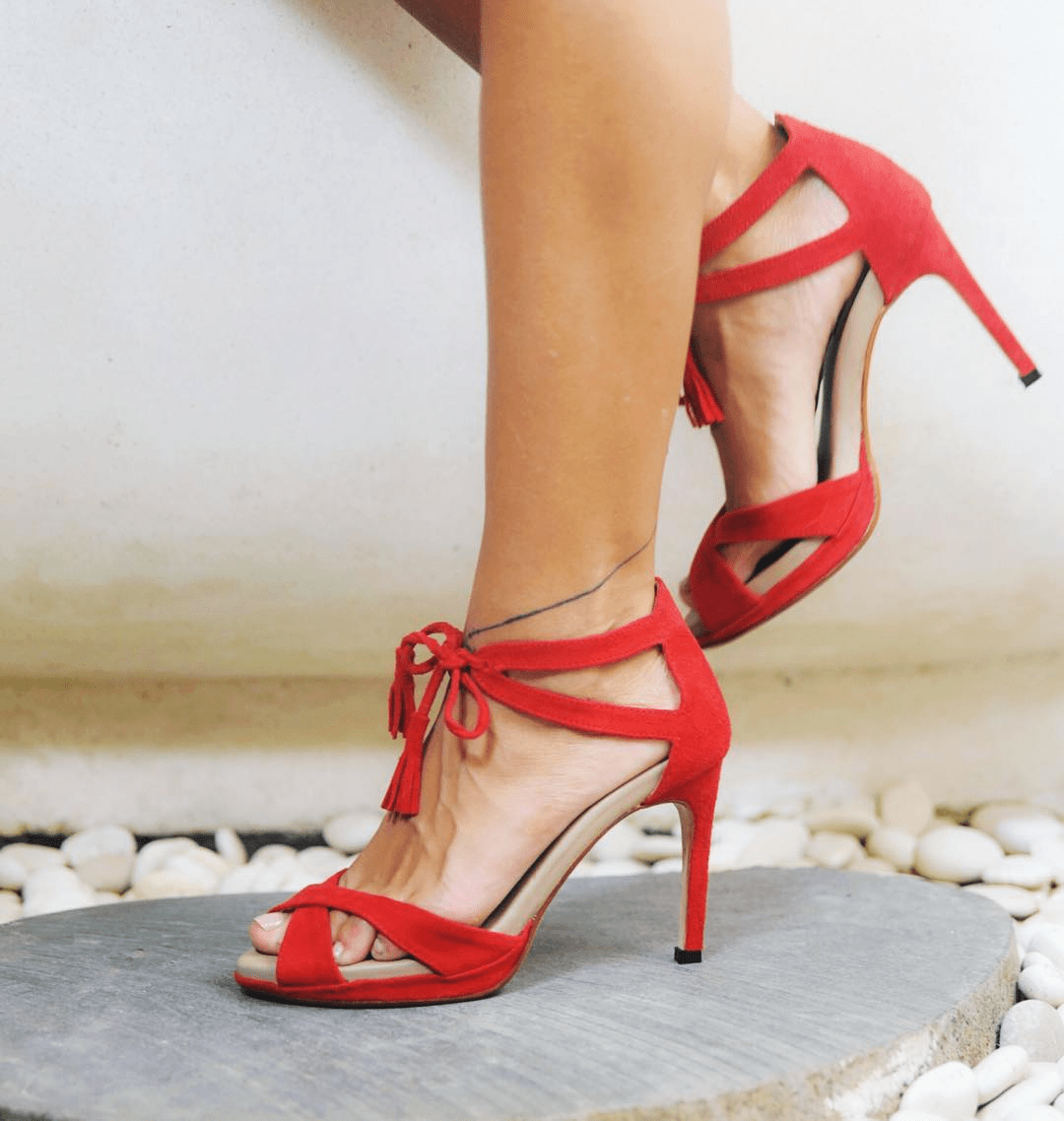
You may be tempted to wear your favourite go-to pair of heels, but it’s advisable not to.
Image credit: @emblemshoes via Instagram
“Something Old, Something New, Something Borrowed, Something Blue”. This phrase is popular in Western weddings, but there’s no rule in the feng shui book that says you can’t bring in beliefs, traditions or practices from other cultures into your wedding. However, do make sure that your “something old” isn’t your wedding shoes as it’ll be considered bad luck.
The reason dates back to the past – when matchmaking was the norm and small feet were the beauty standard for girls. As part of the match-making process, matchmakers would present a pair of shoes from the girl to the groom’s family.
If they’re satisfied, they would bring back the shoes and make a new one for the soon-to-be bride. As the bride and groom are prohibited from seeing each other before their wedding, this was the groom’s family’s method of ensuring that the bride they see on the wedding day is the same girl as the one the matchmaker proposed.
Popular feng shui rules to consider when planning a wedding date
These are just some of the more general feng shui rules that you can consider when planning a wedding date. Do keep in mind that feng shui works differently for everyone. Hence, we advise consulting a feng shui master if you’re really superstitious and would like your wedding date to be super auspicious.
For more feng shui reads:
Cover image adapted from: Daper

Drop us your email so you won't miss the latest news.











